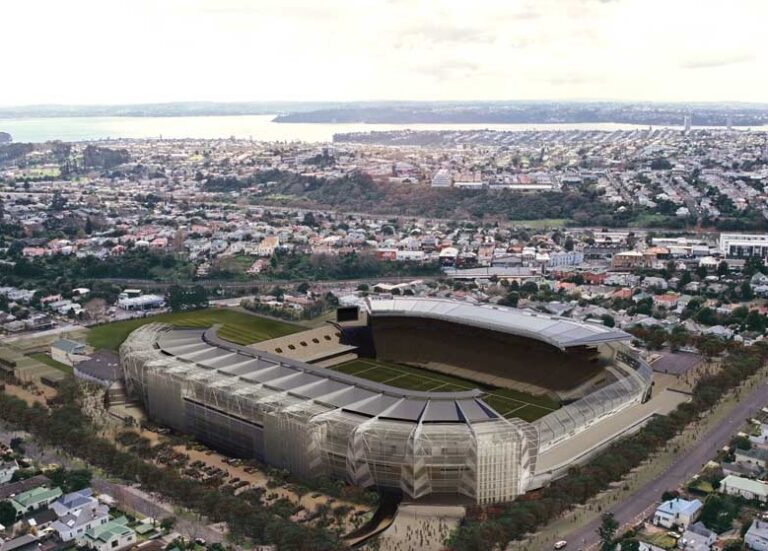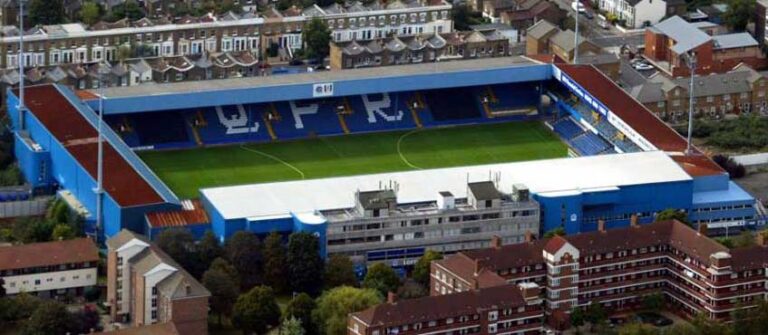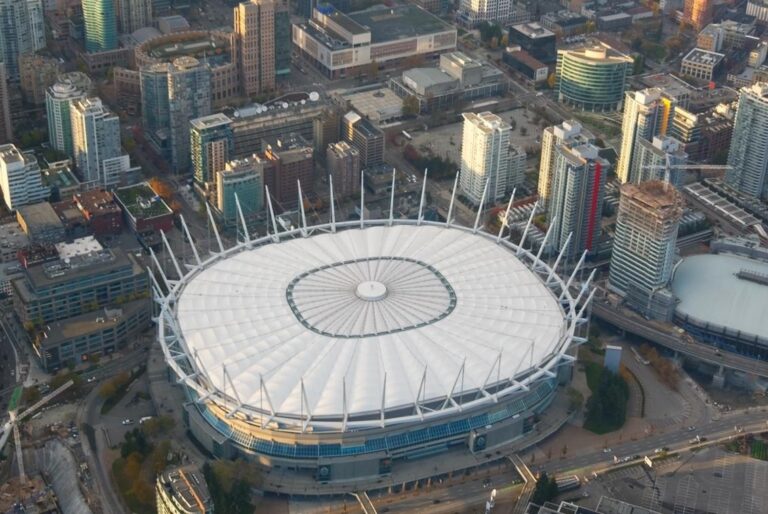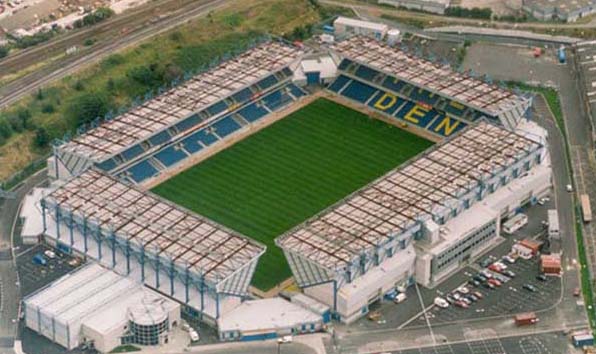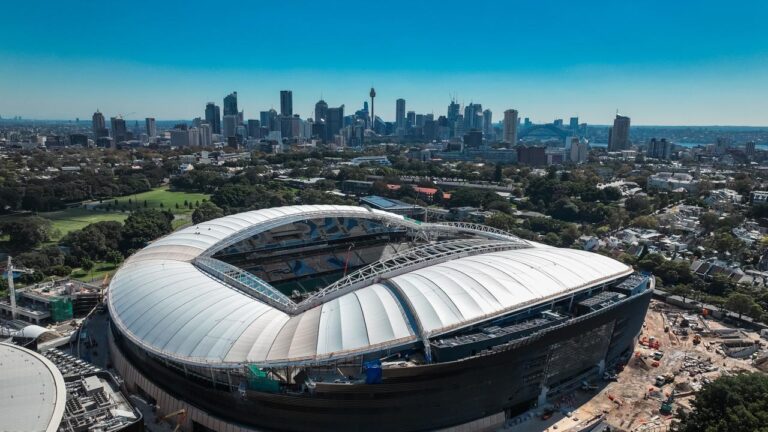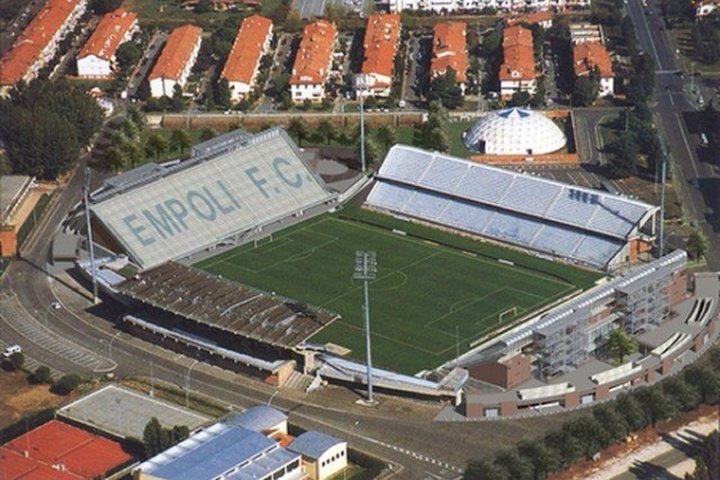Elland Road Stadium – The home of Leeds United
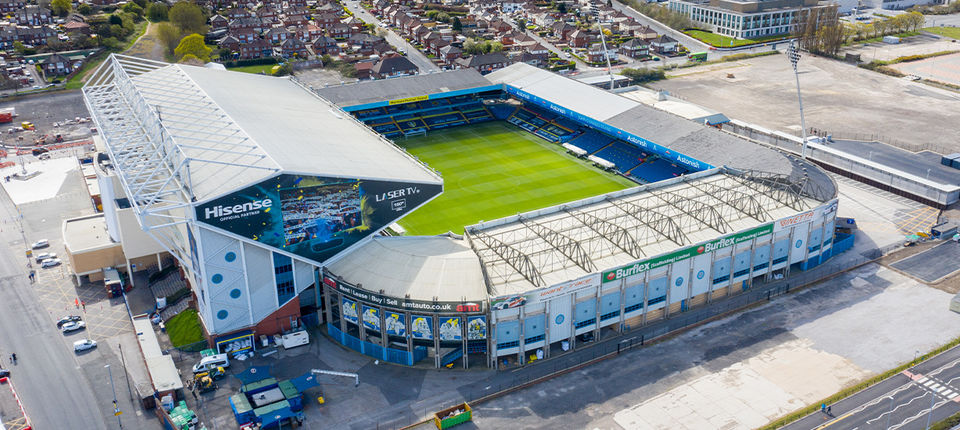
Elland Road is a football stadium located in the city of Leeds, England, which since the foundation of Leeds United has been the stadium used by the club.
Elland Road is a football stadium which is located in Beeston, Leeds, West Yorkshire, England on a hill about 2 miles (3 km) south of the city center. It is the current home of Leeds United, the English premier league club. The club with a capacity of 37,792. The stadium is the 14th largest stadium in England.
The stadium was opened in 1897, and it has a capacity of 37,792. The current team of its stadium is Leeds United and the owner is Andrea Radrizzani. Renovated in 1920s, 1953, 1971, 1994, 2006, 2011–2012.

Elland Road Key facts
Address: Elland Rd, Beeston, Leeds LS11 0ES, United Kingdom
Phone: +44 871 334 1919
Capacity: 37,792
Team: Leeds United
Owners: Andrea Radrizzani, Leeds United Football Club Limited
Opened: 1897
Expanded: 1905, 1920s, 1957, 1968, 1970, 1974, 1989, 1991, 1994
Surface: GrassMaster (Hybrid Grass)
Elland Road Stadium History
The site, at the foot of Beeston Hill off the A643 road to Elland, was owned by Bentley’s Brewery and was called the Old Peacock Ground, after the pub that overlooked the land, hence the Peacocks nickname associated with Leeds City and United . The first occupants were Holbeck Rugby Club (rugby league) who moved out of Holbeck Recreation Ground after purchasing Old Peacock Ground from Bentley’s for £1,100. The first competitive football match at the ground was the West Yorkshire Cup Final on 23 April 1898 between Hunslet and Harrogate, with Hunslet winning 1–0.
The club erected a new grandstand ready for the 1898-1899 season. The land eventually became known simply as Elland Road. For the 1902–03 season, the Association football team, Leeds Woodville of the Leeds League, shared ground with Holbeck RLFC in the 1902–03 season, but Holbeck went under in 1904 after losing a play-off against St. Helens and the terrain. was put on the market. Following a meeting at the Griffin Hotel in Boar Lane in August, a new club, Leeds City, was formed and it was agreed that the Elland Road ground would be leased for the coming season. The lease was signed on October 13, 1904, for a rent of £75 per year. The club had an option to purchase the ground for £5,000 in March 1905, but in November the price was reduced to £4,500.
After City’s first season in the Football League, the club built a 5,000-seat indoor stand on the west side at a cost of £1,050. Attendance was on the rise, culminating in over 22,500 people packing into the stadium to watch a local derby with Bradford City on 30 December, generating £487 of ticket revenue. A program of expansion continued, and club directors ensured that early success was built on, employing a “field committee” to oversee developments. In February 1906, 3,961 square yards of land on the Churwell and Gelderd Road side of the ground were purchased from the Monk’s Bridge Iron Company at a cost of £420. The committee built a 4,000-seat grandstand which was opened by the Mayor, Joseph Hepworth before the game against Chelsea on November 17. The project cost £3,000 and used over half a mile of steel. There was a training track for the players along the stand, changing rooms and official changing, rooms and a garage for cars. Drainage work was carried out on the field to prevent it from becoming waterlogged.
City experienced financial difficulties which put the club’s future in jeopardy, but after much uncer,tainty an offer of £1,000 and an annual rent of £250 for the ground was accepted. The ground was used during the Great War as a practice and shooting location until the 1919-20 season began. City started that season brilliantly, but a scandal involving illegal payments to players during the war years arose and the club was kicked out of the Football League after just eight games. This prompted some local businessmen to consider excavating the clay deposits beneath the field and turning Elland Road into a brickyard. Yorkshire Amateurs became a tenant, with that club playing there for a short period to save the ground from development.
In 1920, Yorkshire Amateurs sold Elland Road to the newly formed Leeds United for £250.
2001-2010
On 16 August 2001, Chairman Peter Ridsdale sent a letter to season ticket holders and shareholders about the future of the club and outlined two options, improve Elland Road or relocate. A voting form was included, but the letter was biased in favor of relocation. Less than 13% voted to stay on Elland Road and 87.6% of the 18,500 who voted were in favor of moving. On 7 September 2001 Ridsdale announced their intention to move the club to a 50,000-seat stadium at Skelton in time for the 2004–05 season. The plans never came to fruition as Ridsdale resigned in March 2003 leaving a financial mess and the PLC was soon to follow in March 2004.
Later that year, Elland Road was sold on a 25-year lease-and-buyback clause to raise funds to repay a loan installment to Jack Petchey. On December 27, 2006, it emerged that the stadium had been sold to Teak Trading Corporation, based in the British Virgin Islands, 15 months earlier.
In the summer of 2006, the South Stand was upgraded and closed for the first few games of the 2006–07 season while work was completed. The remodeling included boxing in the columns and concrete niches; remodeling of the kitchen area, a mezzanine office area, modernization of the corporate facilities above, and a restaurant, Billy’s Bar, named after former club captain Billy Bremner.
Development plans on Elland Road to include hotels, a shopping center, and a gym was included in the program for the match against Huddersfield Town on 8 December 2007. There would be hotels on the site of the store. Possible adjacent developments could include an arena, a casino, a police station, cafes, bars, and parking for 2,700 cars. On 27 October 2008, the club published plans for the redevelopment behind the East Stand containing a 350-room hotel, a covered arcade with shops, bars, and restaurants; expanded and improved facilities for business conferences and events, a megastore, an office block, and a nightclub. On 6 November 2008, the council announced that it would not build the proposed Leeds Arena on council-owned land adjacent to the land.
On 16 December 2009, the host cities and stadiums to be used if England wins the right to host the 2018 World Cup were revealed. Leeds was chosen and, if the bid had been successful, the John Charles and Don Revie would have been rebuilt, leading to an increased capacity of over 50,000, however, this never happened due to England not hosting the 2018 World Cup.
On December 28, 2009, President Ken Bates discussed future plans to increase the capacity of the South Stand in the future by around 2 to 3,000. This would be achieved by removing the executive boxes and replacing them with seats, however, this work never started due to Ken Bates selling the club in 2012.
2010–present
In March 2011, East Stand Development began phase one of a five-phase redevelopment project that included an extension to the main lobby of the East Stand Upper along with the addition of 25 executive boxes and a modern update to the stand’s external appearance; While this created additional corporate facilities and more space on the concourse, it, in turn, reduced the capacity of the East Stand Upper by around 2,500 seats, thus leaving the overall capacity of the ground at just under 38,000 seats. An arcade, hotel, and megastore were planned to be built as part of the four additional phases, however, these plans were not carried out following the sale of the club to GFH Capital who then sold the club to Massimo Cellino.
In June 2017, new Leeds United owner Andrea Radrizzani bought the stadium back from Jacob Adler’s company, Teak Commercial Limited, for £20m, using his own company, Greenfield Investment Pte Ltd. The first game to regain control of the stadium was against Oxford United in a pre-season friendly on Saturday 29 July 2017 in which Leeds United won 2-0.
In July 2017, the club announced that a number of internal and external improvements were being made to Elland Road to improve the overall appearance of the stadium. Improvements consisted of a partially new roof and cladding on the West Stand, banners on either side of the East Stand, the South Stand, and the north-east corner of the ground featuring Leeds United legends past and present. Additionally, the interior of the West Stand, dressing rooms, and hospitality suites underwent cosmetic upgrades.
In April 2020, following the death of Leeds legend Norman Hunter, the Elland Road South Stand was renamed “The Norman Hunter Stand”.
In January 2021, the club announced plans to transform the adjoining ‘Centenary Pavilion’ into a large vaccination center to counter the COVID-19 pandemic, as part of the UK’s COVID-19 vaccination program.
Construction of Elland Road Stadium
| Construction | |
|---|---|
| Built | 1897 |
| Opened | 1897 |
| Renovated | 1920s, 1953, 1971, 1994, 2006, 2011–2012 |
| Expanded | 1905, 1920s, 1957, 1968, 1970, 1974, 1989, 1991, 1994 |
The pitch
The field is approximately 115 yards (105 m) long by 74 yards (68 m) wide, with runaway space on each side. There is an underground heating system installed below the surface, consisting of 59 miles (95 km) of pipe. This, coupled with a good drainage system, means that only a heavy fog, blizzard, or flood would force the club to cancel a match. There are wells sunk approximately 70 feet (21 m) below the west stand and north stand and a pumping system is situated below the south stand, meaning the club can draw water from its own supply, should the need arise. . However, the first time the club used it, the field turned black because the water was too cold.
Future
In August 2001, when Leeds was still a leading team in the Premier League, chairman Peter Ridsdale revealed plans for the club to move to a 50,000-seat stadium at Skelton. The following month, the club’s 33,250 season ticket holders were asked to vote on the proposed relocation. 87.6% of them voted for the relocation, but the plans were abandoned two years after the start of the club’s financial crisis and the decline of fortunes on the pitch.
More recently, in October 2019, Leeds United managing director Angus Kinnear suggested that Elland Road’s capacity could be expanded to 50,000 if they were promoted to the Premier League.
Elland Road Capacity
It has a seating capacity of 37,792.
Elland Road Records
57,892 (Leeds United vs Sunderland, 15 March 1967)
How to get to Elland Road?
FROM THE NORTH
A1, A1-M1 link road and join M621 to junction 1. Take 1st exit A643 from roundabout into Elland Road And the stadium is on the right or Use A58 or A61 into Leeds city center, then follow signs Motorway M621 to join Motorway. In 1.6 miles, leave Motorway, and at a roundabout join A643 into Elland Road for Leeds United FC.
FROM THE SOUTH
M1, A1-M1 link road and join M621 to junction 1. Take A643 1st exit from the roundabout into Elland Road and the stadium is on the right.
FROM THE EAST
A64, A1, and then as from North or M62 M621 to junction 1 Take 1st exit A643 from roundabout into Elland Road and the stadium is on the right.
FROM THE WEST
M62, M621 To Junction 2 Take 3rd exit A643 from the roundabout into Elland Road and the Stadium is on the right.
Address: Elland Rd, Beeston, Leeds LS11 0ES, United Kingdom
Elland Road Stadium tours
We are one of only a few clubs that allow fans behind-the-scenes access on the day of a home game.
The Elland Road Stadium Tour takes in all the main places of interest including the dressing rooms where you may even get to see the kit is laid out in readiness for the game ahead. You’ll also have the chance to walk up the famous tunnel and experience a feeling only known to Leeds United players. Of course, you’ll get to take the manager’s seat in the dugout too!
Matchday Tours
Matchday Stadium Tours commence from Billy’s Bar at 10 am prior to a 3pm kick off and 2 pm prior to an evening kick-off and lasts for approximately an hour and a half.
Matchday Stadium Tours are available for only £15 for Adults and £10 for Juniors under 16 and Senior Citizens aged 60 and over. Discounts are available to both Season Ticket Holders and Leeds United Members.
Click here to book a Stadium Tour online.
All Stadium Tours must be booked in advance and as they are extremely popular we recommend fans book early to avoid disappointment as places are limited.
ParkingMatchday parking is limited and is only available in the municipal car parks around the stadium at a charge.
Click here to book an Elland Road Stadium Tour online now, visit the Ticket Office Counters in the Elland Road Superstore or call the Ticket Office on 0871 334 1992**

